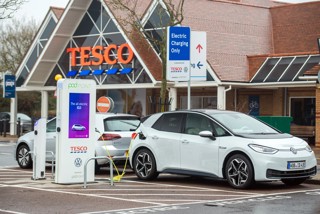The first electric vehicle (EV) code of practice has been launched to ensure that consumers receive fair treatment from domestic charge point installers.
The Electric Vehicle Consumer Code (EVCC) aims to reduce the mis-selling of home energy generating systems such as photovoltaic (PV) and battery storage and improve installation quality.
The code is a voluntary scheme which domestic charge point installation businesses can subscribe to, identifying them as reputable.
The code draws on experience from the Renewable Energy Consumer Code (RECC) for small-scale renewable technologies. Both the Electric Vehicle Consumer Code and the Renewable Energy Consumer Code are administered by Renewable Energy Assurance Limited (REAL).
Virginia Graham OBE, chief executive of Renewable Energy Assurance, said: “RECC has played a foundational role in enforcing high consumer protection standards in the small-scale renewable energy industry since 2006.
“We aim to extend the lessons learnt from that sector into the rapidly-growing world of EV home charge points.”
The launch of the code follows the Government’s announcement made in February that intends to consult on bringing forward the date banning the sale of new internal combustion engine cars and vans from 2040 to 2035.
Transport minister Rachel Maclean said: “Zero emission vehicles are cutting transport emissions and improving air quality, making our communities healthier, better places to live. Having the right rules and regulations on charge point installation standards is important and we want to see industry showing leadership in this area.
“We welcome the Electric Vehicle Consumer Code which aims to protect both people and installers of electric charge points in homes across the UK.”
There are currently around 1,000 businesses in the UK authorised to install domestic charge points through the Government’s Electric Vehicle Homecharge Scheme - one in four of these are also a RECC member.
Nina Skorupska CBE, chief executive at the Renewable Energy Association (REA), said: “The EV charging industry is committed to best practice. Decarbonisation of the UK transport sector is our aim, but to achieve this we need to bring consumers with us on the journey and ensure they are confident about the low-carbon products and services on the market.”
Installer Joju Solar supports the introduction of the Electric Vehicle Consumer Code.
Chris Jardine, technical director of Joju Solar, said: "As an experienced installer of EV home charge points, Joju is well-placed to support this important consumer protection initiative. With the EV charge point sector set to grow exponentially we need to ensure consumers have the confidence they need to play their full part.”






















Login to comment
Comments
No comments have been made yet.